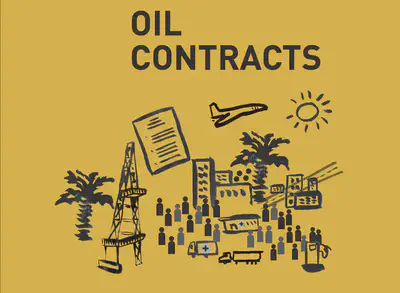Here is to a book that did not exist a week ago - 'How to understand an oil contract'
This week, Open Oil project performed a marvelous stunt - the “Oil Contracts Booksprint”. Johnny West, Zara Rahman and their supporters gathered oil contract experts from across the globe at Schloss Neuhausen to achieve something that has never done before - create a book that explains how to understand an oil contract. Not only did such a book not exist, they also published it under a Creative Commons license. And because that is not enough of a challenge, they did it all in one week.

Oil contracts determine the share of the oil revenue that the country who owns the oil, the international oil companies and others receive. From the book: “It is petroleum contracts that express how [the] money is split and who makes what profits, just as it is the contracts that determine who manages operations and how issues such as the environment, local economic development, and community rights are dealt with. The share price of ExxonMobil, the question of who carries responsibility for Deepwater Horizon, whether Uganda will be able to stop importing petrol, and how much it costs to heat and light homes in millions of homes these are issues which depend directly on clauses in the contracts signed between the governments of the world and the oil companies. For most of the 150 years of oil production, these contracts have remained hidden, nested in a broader secrecy that surrounded all aspects of the industry. Governments claimed national security prerogatives, companies said commercial sensitivity precluded making them available.”

People who have attended an Open Source develoment sprint may notice that the desk in the picture pretty much looks like at one of them. A book sprint applies techniques and tools developed in the Open Source world to authoring. Gather the relevant people, get them to a remote location with little distraction, and then allow them to focus on producing something they are passionate about. As in software, the results are impressive. Collaborative editing tools are used to coordinate between authors, editors and illustrators, similar to version control. It is also noteworthy that of the different expert that attended the sprint, all attended on a pro-bono basis or as part of their day job.
The “How to understand an oil contract” book is a good read even for people who are only casually interested in the politics of oil. How the book was produced serves as a great example of the Open Source way adopted by other, less technology related sectors. And if the book contributes to making oil contracts better understood and more comparable, the world has just become a better place.